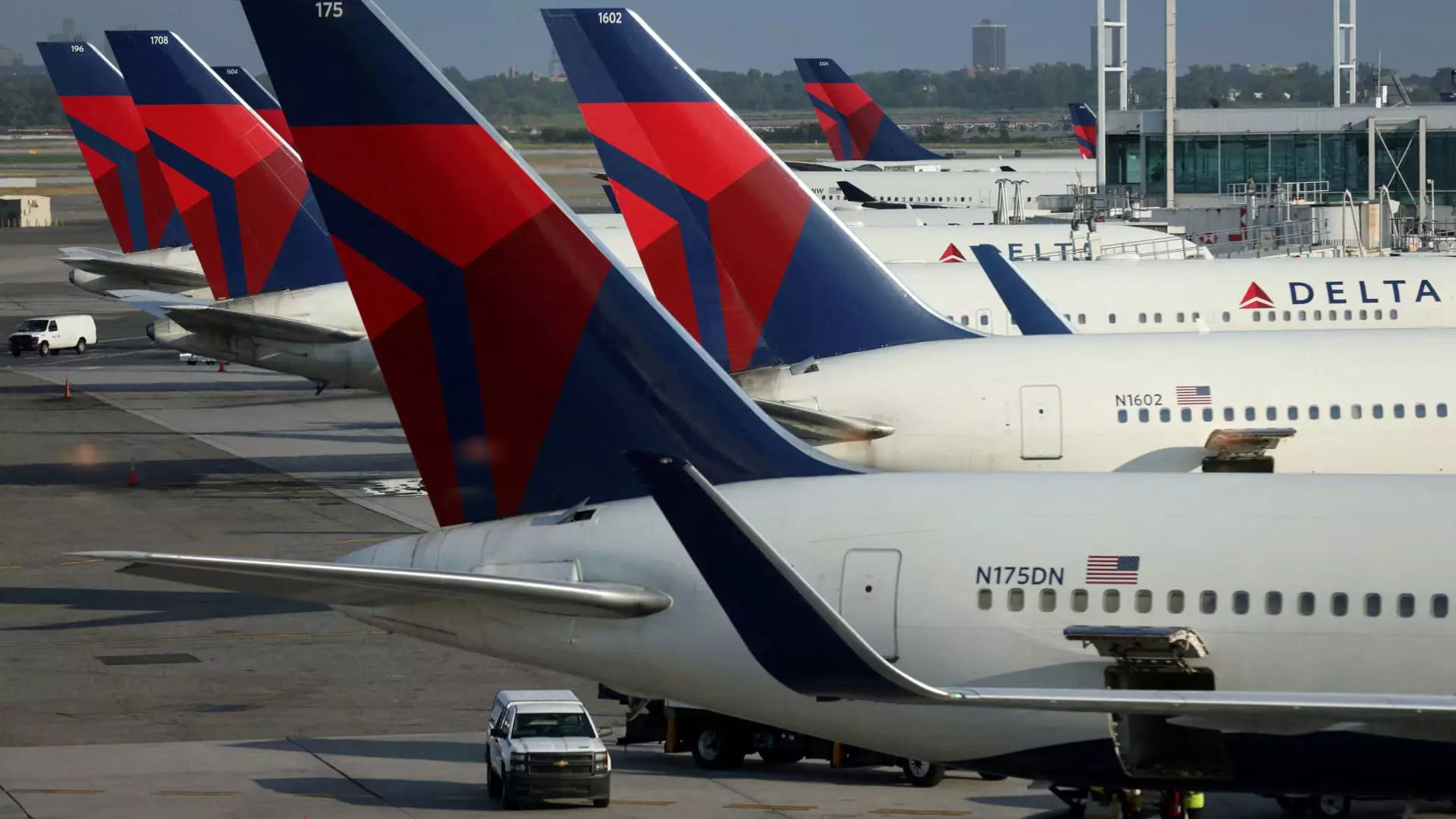In a significant turn of events, Delta Air Lines has initiated legal proceedings against CrowdStrike, a renowned cybersecurity company, stemming from a software outage that occurred in July. The incident dramatically affected Delta, leading to the cancellation of approximately 7,000 flights and causing a staggering loss estimated at $380 million in revenue, coupled with $170 million in added costs. The airline alleges that CrowdStrike’s negligence and breach of contract directly contributed to this widespread disruption, an assertion that has sparked a controversial discussion in both the technology and airline industries.
At the heart of Delta’s lawsuit lies a problematic software update connected to CrowdStrike’s Falcon program, which purportedly compromised the stability of computers running Microsoft Windows. The airline contends that while it had disabled automatic updates to mitigate risks, this specific update bypassed their defenses, resulting in catastrophic downtime. Delta’s claim suggests a substantial lapse in CrowdStrike’s operational protocols, further highlighting the complexities of software deployment in high-stakes environments such as commercial aviation.
Delta’s legal team, led by high-profile attorney David Boies, is pushing for recompense not only for direct financial losses but also for costs related to litigation and potential punitive damages. The airline’s complaint is notably severe, accusing CrowdStrike of cutting corners in their testing and certification processes. In a striking declaration, Delta claims that had even a single test been conducted prior to deployment, the catastrophic failure could have been averted. This allegation raises critical questions about the diligence with which cybersecurity vendors validate their updates, especially for clients in sensitive sectors.
In response to the gravity of the incident, CrowdStrike’s CEO, George Kurtz, issued an apology and has expressed a commitment to revising internal processes to prevent future occurrences. The company’s acknowledgment of this mishap stands in stark contrast to Delta’s demands and paints a picture of a troubling reality in the world of cybersecurity. The implications of this lawsuit extend beyond Delta and CrowdStrike, potentially bearing consequences for software best practices across various industries as reliance on technology continues to expand.
The fallout from this incident may lead to rigorous revisions of industry standards concerning software deployment and testing. With Microsoft also operating in the crosshairs regarding this situation, their dialogue with CrowdStrike and other security software vendors may evolve into a critical examination of how updates are managed and implemented in high-risk environments. As the case unfolds, stakeholders will be watching closely to see who is held accountable and how this impacts the contractual relationships between airlines and tech firms moving forward.
Delta Air Lines’ legal battle with CrowdStrike serves as a cautionary tale about the vulnerabilities inherent in technology reliance. As digital infrastructure becomes ever more integral to operational functionality, the importance of robust software management cannot be overstated, and this case may very well set a precedent for accountability in the tech industry.

